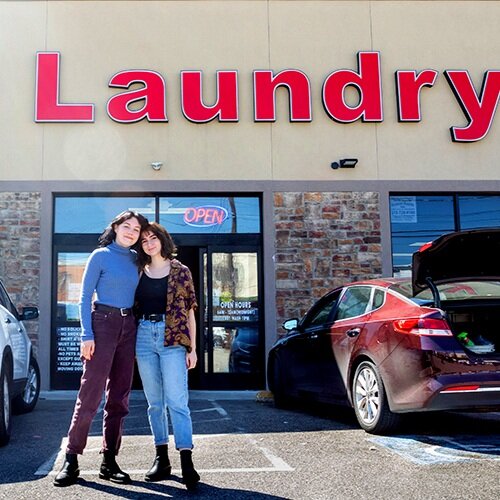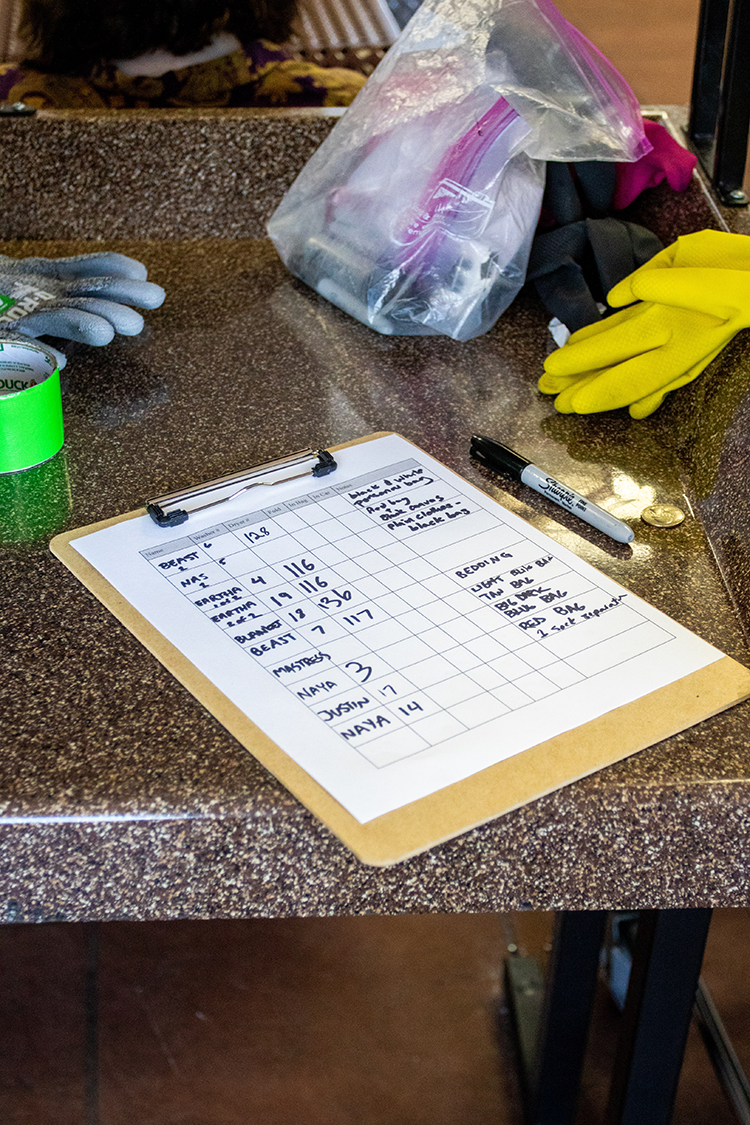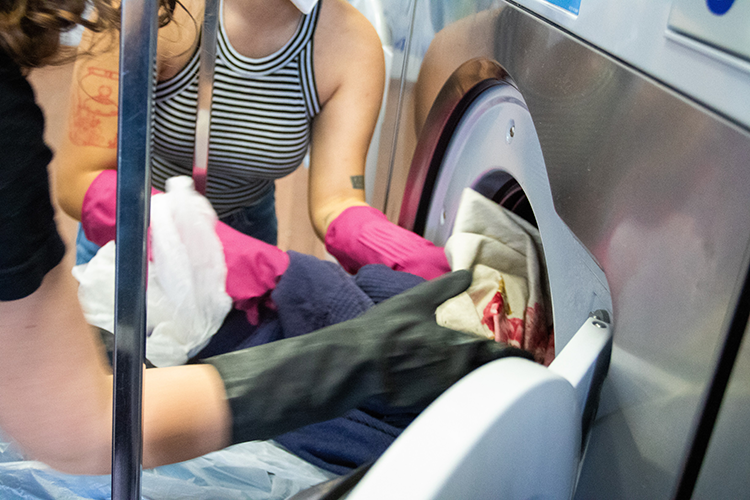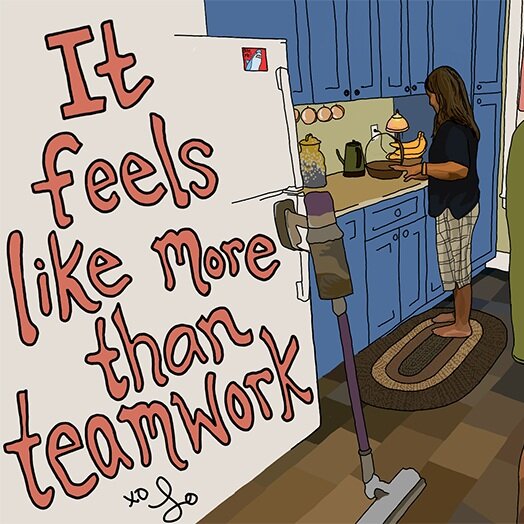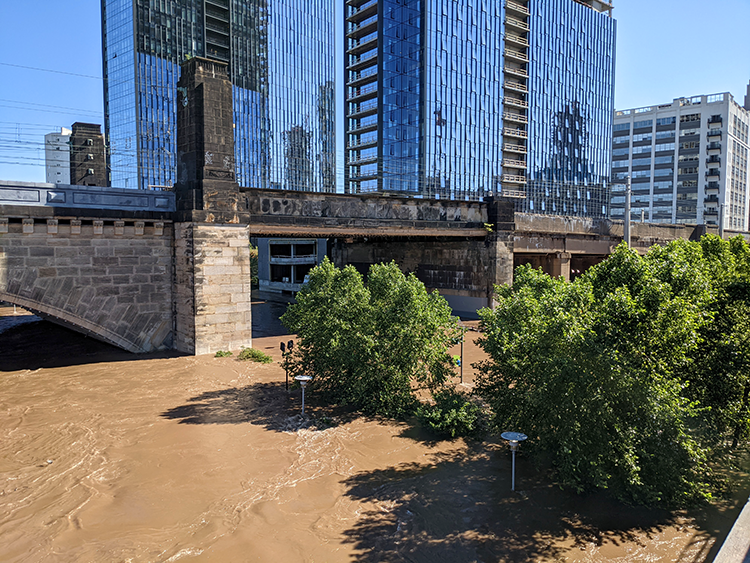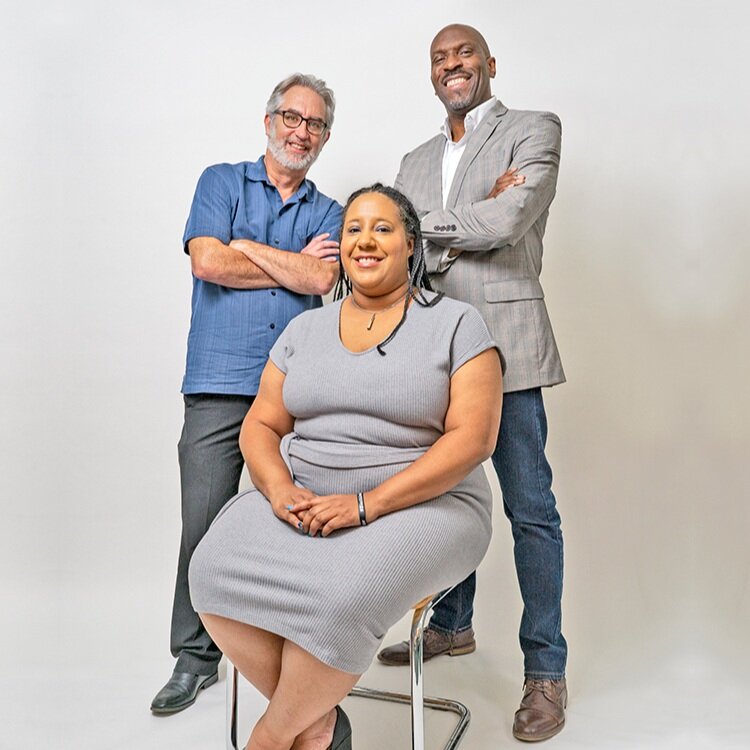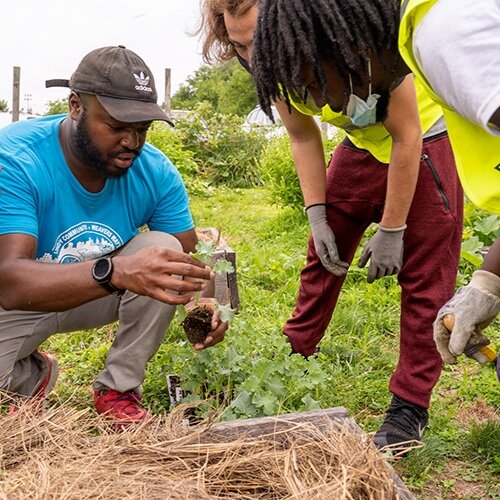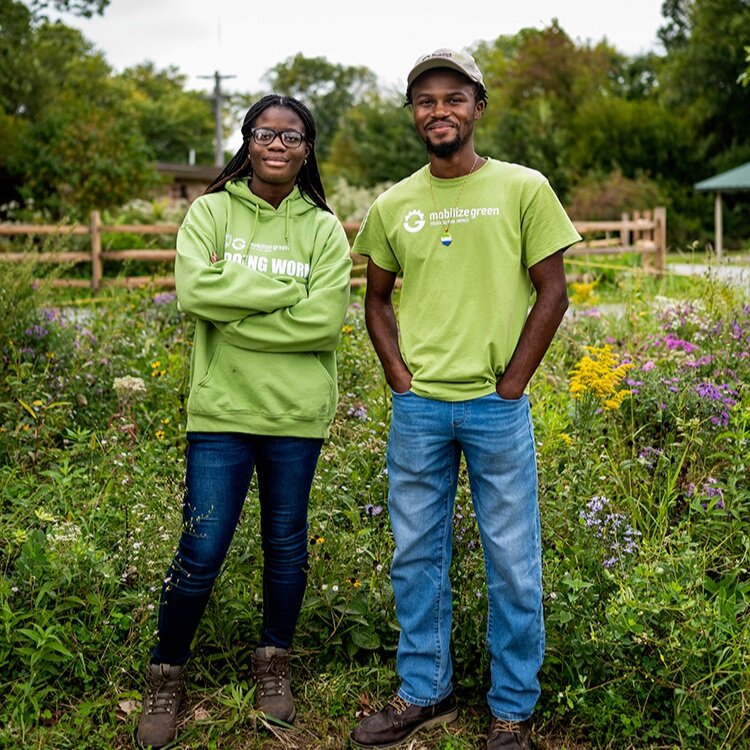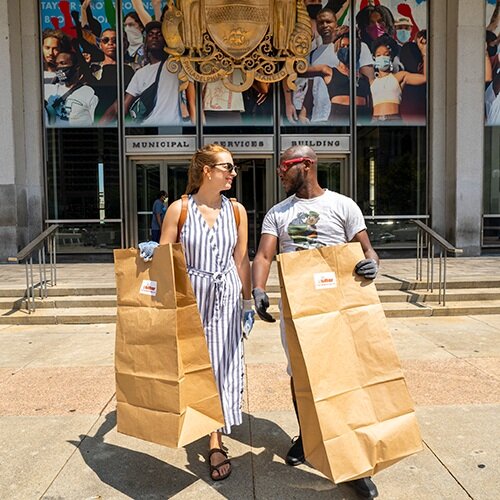When you don’t have a home, you likely don’t have access to a laundry room, or a basket and quarters to go to the laundromat. A mutual aid group has stepped in to provide for this need, which is not addressed through most charities or organizations.
It began as a tent and table atop muddy grounds at Von Colln Memorial Field on the Benjamin Franklin Parkway, with unhoused residents of Camp James Talib-Dean (JTD) dropping off dirty clothes and picking them up freshly laundered to take back to their tents.
“We pretty much started around the first eviction notice that the JTD encampment got,” explains Elizabeth Jiacopello, an activist and mutual aid organizer.
Camp JTD, along with Camp Teddy in North Philadelphia, grew out of necessity in the wake of the George Floyd protests in June 2020, and continued through October 2020.
According to Jiacopello, a disorganized group of volunteers started to “walk up to random people, ask if they needed some laundry done and take it home.”
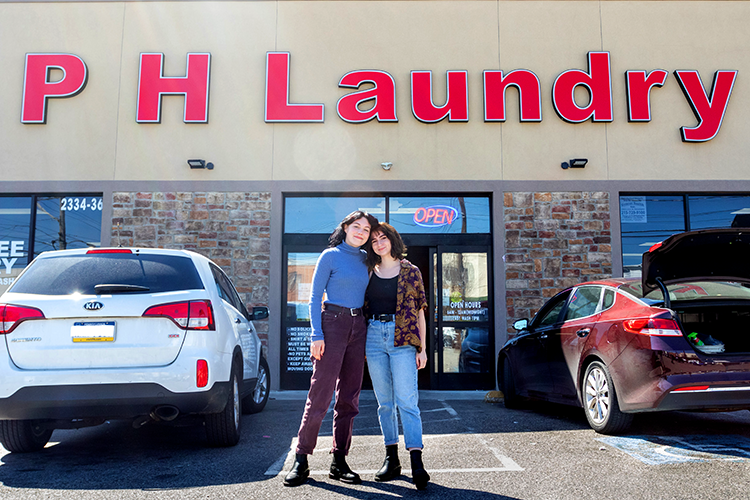
The person-to-person laundry process proved to be difficult, and according to Jiacopello, “a lot of laundry got lost in the process.” Eventually the group set up a table and tent upon request from an encampment resident.
The city ultimately negotiated with encampment residents to provide them housing in a myriad of ways after attempting to evict them three times.
“I think it’s kind of a basic need that we all take for granted having access to.”
— Elizabeth Jiacopello, PHL Laundry Support organizer
Jiacopello, along with her co-founder Bella Main and other volunteers, decided to expand the scope of their services throughout the city. Now they operate as a mutual aid group that offers laundry services to the unhoused and housing insecure under the name PHL Laundry Support.
The group has grown to have more than a dozen volunteers and cleans the laundry for 50 to 60 people on a weekly basis. The operation is rather complex, now requiring a small fleet of drivers, coordination by phone and two days a week of volunteer work at a laundromat.
A volunteer and organizer who only gave the name Bengal expressed the importance of differentiating between charity and mutual aid, saying “we’re helping people that are similar to us, we’re in the same boat. I like to use mutual aid as a way to form relationships with our community.” To Bengal it’s about more than “helping someone that’s poorer than you, it’s about forming networks and relationships and understanding how to live in our society better by helping each other.”
In the words of PHL Laundry Support member Astrid Dong, “we kind of have a network of folks that we’ve built long-term relationships with, so we set up a time to pick up their laundry, drive it over to a laundromat, get that washed and folded then we drive it back.”
The process involves constant communication with participants.
“A big issue we’ve run into is people constantly changing numbers and phone plans,” explains Jiacopello. “It’s hard to keep in contact sometimes, but luckily the community that they all are a part of kind of looks out and [will] be like, ‘I know where this person’s staying next week.’”
The unhoused community is complex. Although they are not a part of any formal group there is still a noticeable community with unwritten mores and networks. Homelessness, by its nature, is transient.
“We’ve met a lot of people that have full-time jobs that live in a tent for a period of time because of some raw deal they have with [a] landlord,” explains Bengal, referring to those who are housing insecure or have been evicted.
People served by PHL Laundry Support range from the unhoused who were sleeping in the Locust Street Subway Station to people who are living in tents in Kensington to people who have found housing after Camp JTD was shut down.
One member of Camp JTD who still relies on the group is Edwin “Beast” Jones, 61. Jones says that the laundry service gives him “the liberty to do the things I gotta do, like relax.” He estimated that it saves him a couple hours and more than a hundred dollars every month, but really stressed that he appreciates the time to himself.
“I think it’s kind of a basic need that we all take for granted having access to,” expresses Jiacopello. Bengal added, “It doesn’t seem as pressing to people, but it costs a lot to do a load of laundry and there are a lot of folks that have a hard time finding access to doing that. If you’re living in a tent, it makes your life much easier.”
Laundry days are Thursday and Saturday every week. Before laundry days, pickup times and routes need to be devised for their team of drivers. Laundry shifts normally begin at 10 a.m. and can be as long as four or five hours.
PHL Laundry Support also offers “package support,” which Bengal describes as “giving people coins or cash and detergent for how many loads they need to try and help out with their laundry needs.” They normally distribute these packages on Sundays or alongside Homies Helping Homies, another mutual aid group, on Mondays.
“This helps everyone,” says Jones. “Even the people that are on drugs. People on drugs won’t wash their clothes, they’ll let them get dirty then steal some new ones.” Beast added that “they need to keep doing it, hopefully more people donate to give them the funds to keep going.”
PHL Laundry Support currently welcomes donations and volunteers, as they seek solutions to stay afloat, says Jiacopello. “Funding has been so hard to keep consistent.”
To learn more about PHL Laundry Support or volunteer with the organization, find @PHLLaundrySupport on Instagram.


